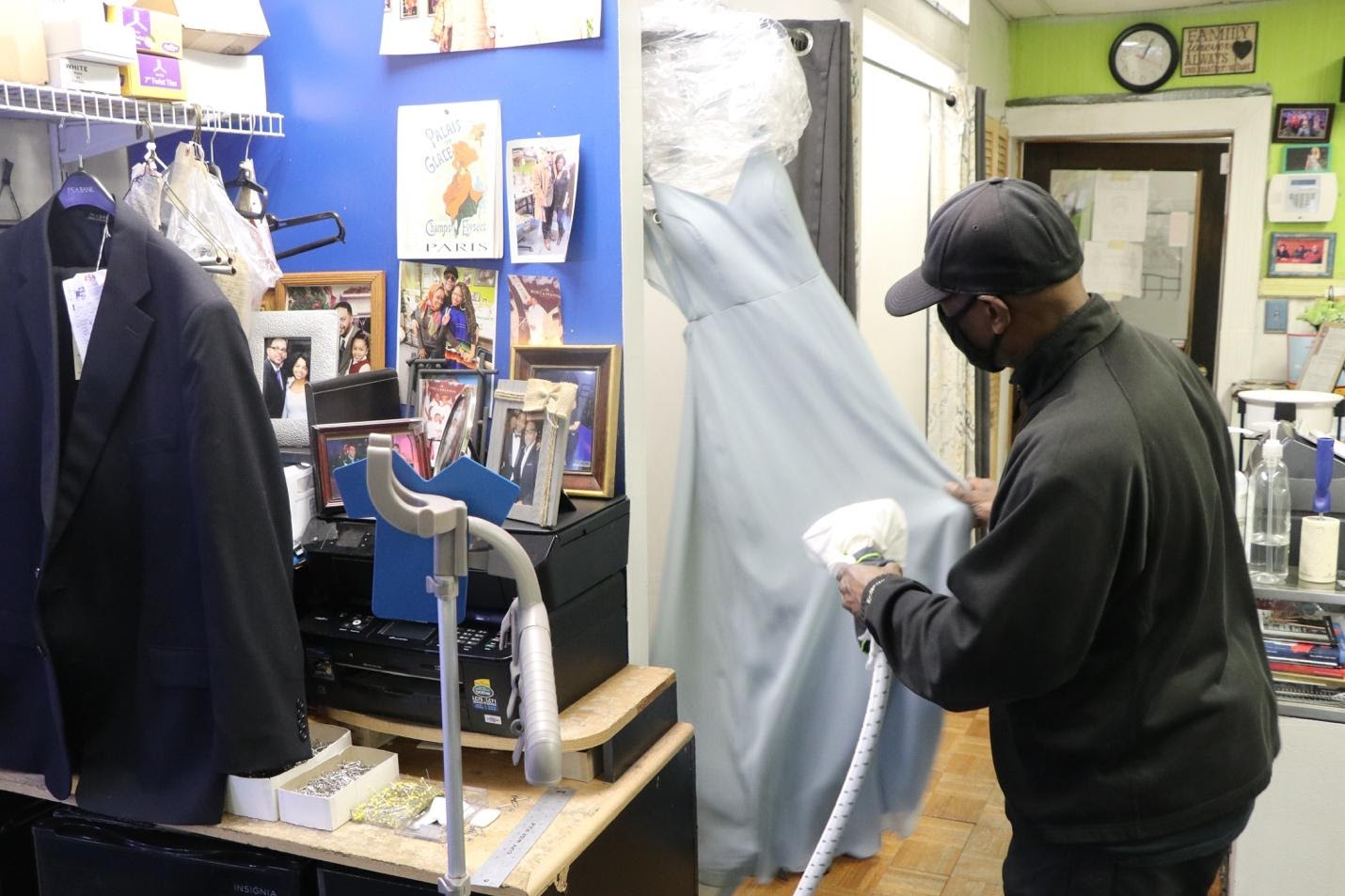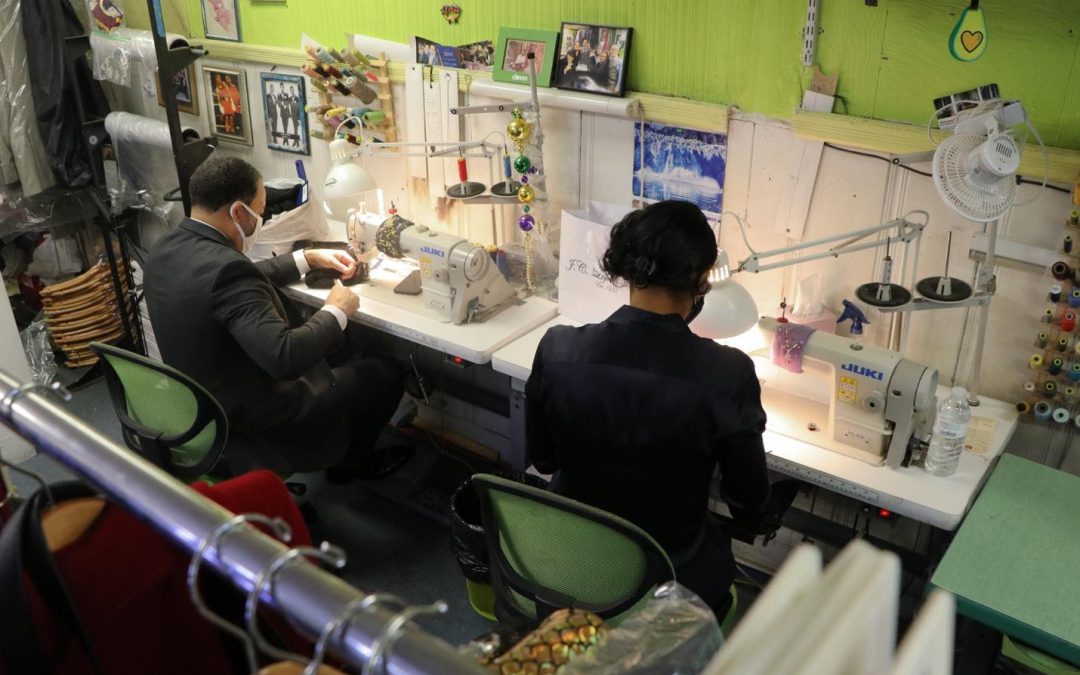Julius “Eddie” Lofton’s family has been in the tailoring business since 1939.
Lofton remembers as a kid riding around on the conveyor belt at the shop while his grandfather worked. When Lofton was about six, he realized he was small enough to reach into the soda machine to hand out free drinks to employees and customers. His grandfather, JC Lofton, understandably, didn’t love that plan.
“I didn’t know what I was doing. I thought I was helping people,” Lofton laughed.

Eddie Lofton, owner of JC Lofton Tailors, poses with a photo of his grandfather at the checkout counter of his store in Washington, D.C. (Julia Benbrook/Medill News Service)
Now, as the owner of JC Lofton Tailors in downtown Washington’s U Street corridor, he still wants to help people.
“I’ve done suits for guys and didn’t charge them anything because they didn’t have the money at the moment, but guaranteed they always come back and they always remember,” Lofton said.
Lofton has also tailored outfits for celebrities, including singer Barry Manilow and country music group Little Big Town.
During normal times, JC Lofton Tailors counts on big orders for hotel uniforms and special occasion outfits, but many of those orders have been canceled due to the pandemic.

JC Lofton Tailors is located on the corner or U Street and 10th Street in Washington DC. The shop specializes in alterations and custom outfits. (Julia Benbrook/Medill News Service)
Lofton received a $10,000 grant from the Wells Fargo Open for Business Fund to help him cover rent and utilities.
“Without them, I don’t know where I would be to tell you the truth,” he said.
Nearly half of all small business have reported drops in revenue during 2020, according to the Q4 Wells Fargo/Gallup Small Business Index.
Wells Fargo said it created the Open for Business Fund to help small businesses stay afloat during the COVID-19 pandemic. So far, it has provided $84 million to help keep 50,000 small business jobs. More than eight in 10 grants went to minority-owned businesses, according to Wells Fargo.
“We know that Black and Latino and Native-owned businesses are really hit hard overall by COVID-19,” said Jenny Flores of Wells Fargo small business growth philanthropy.

Anton Drew, an employee at JC Lofton Tailors, steams a bridesmaid dress for a customer. (Julia Benbrook / Medill News Service)
Wells Fargo is donating $400 million in gross processing fees from the first round of the Paycheck Protection Program to its Open for Business Fund. Local community development financial institutions, including LISC in Washington, help Wells Fargo identify the local businesses that need help.
LISC program officer Victoria Melendez, who worked with closely with Lofton on the grant process, said that he has a “steadfastness and unyielding kindness in the face of turmoil that no one could have imagined.”
“There’s a uniqueness that small businesses offer, that our city would lose if we don’t support them,” Melendez said.


